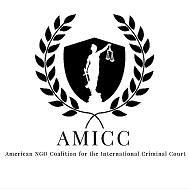The prevailing theme of ASP 12 at the end of its first week was that the ICC is at a major moment ("turning point," "mile stone") for its future. This featured prominently in most formal speeches and debates. It was an important aspect of the ASP meetings devoted to the agenda items of victims, enforcement and of the procedure in prosecuting heads of state or government requested by Kenya and the African Union.( It was also prominent in the side events and conversations on Syria, a subject not on the formal agenda).
Unlike earlier sessions, which were conducted largely as generalized debates, this session was organized around thematically-distinct meetings devoted to separate agenda items. This was intended to make discussions more productive and did in fact do so. This organizational structure also presented the ICC's time of fundamental transition from many angles and within various ranges of information on different subjects.
A number of factors contributed to the sense that the Court is at a turning point: the Kenya/AU challenge; the constant and demoralizing problem of failure to enforce arrest warrant (the session's euphemism for this is "cooperation"); lessons learned from the several cases now fully underway, or concluded except for appeals; and the hovering threat that States Parties will insist on budget reductions that will make it impossible for the Court to fulfill its responsibilities under its Statute.
There is a real recognition here that the right response to this fraught time for the Court and to the problems creating it can make for a stronger Court that is more credible, efficient, and viable. There is also sober awareness that most of these problems are very obdurate. There is unusual willingness here to engage with these problems, rather than just talk about them. The second week will need to make the very most of its short time and diplomatic resources for a strong start to making good on this awareness.


No comments:
Post a Comment